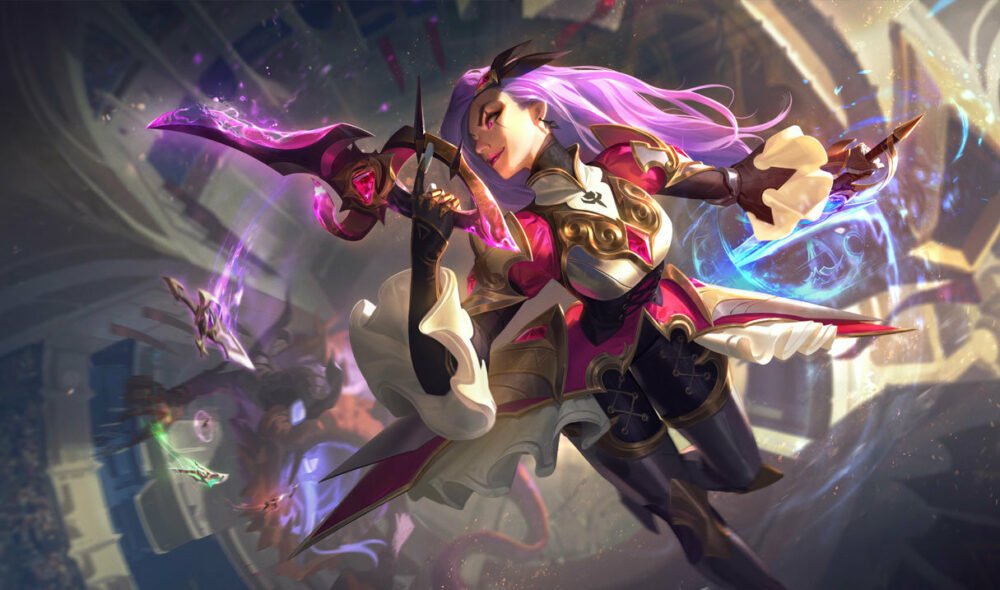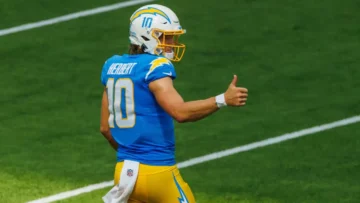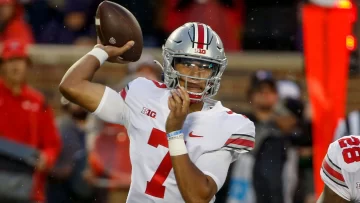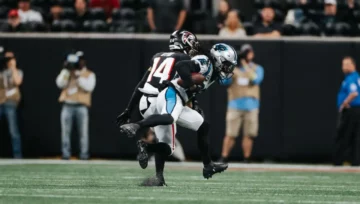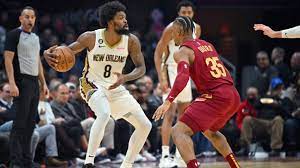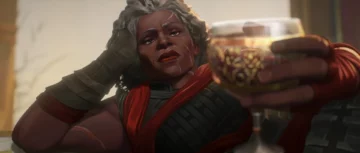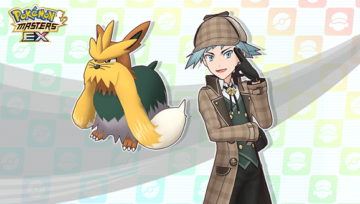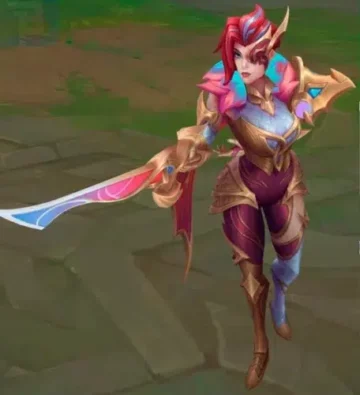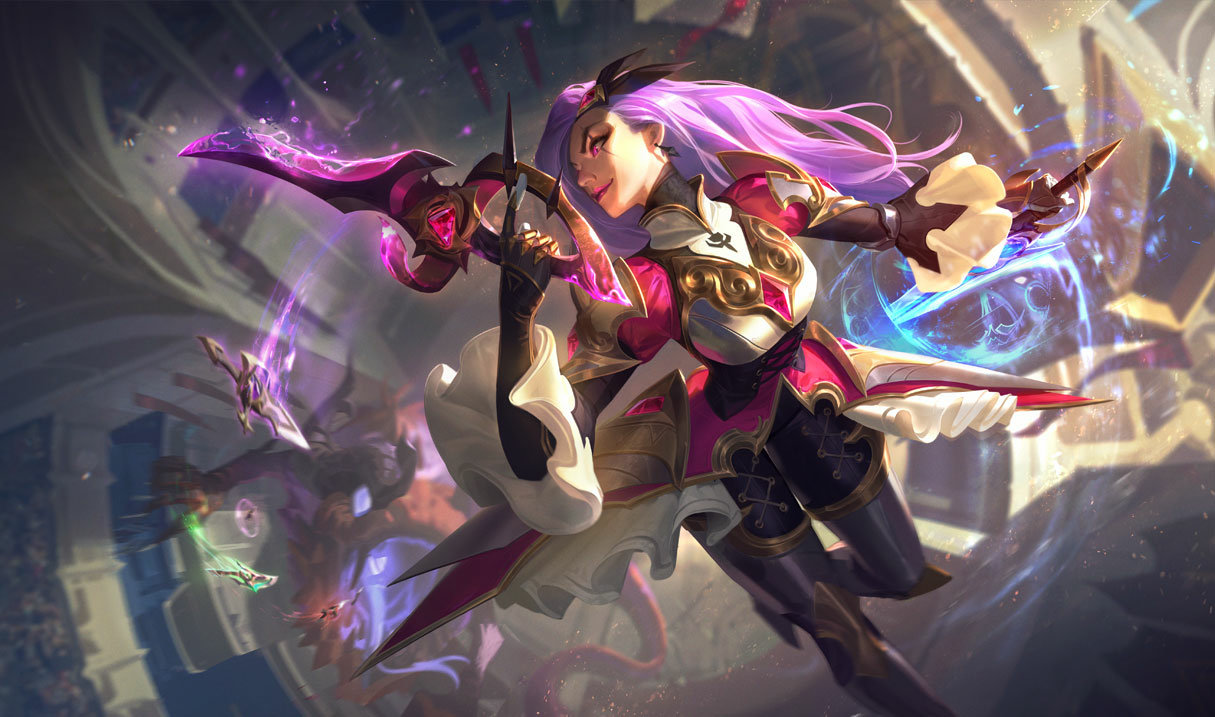
Oftentimes, players quickly reach a roadblock when trying out new champions. The early stages of learning a champion are often difficult, and sometimes even unfun. As players rack up losses or struggle to enjoy early games, many ask themselves: “Should I even play this champion?”
It can be difficult to distinguish between a few sets of bad games versus complete champion incompatibility. However, there are some signs that point toward pressing forward with a champion, and others that signal that it’s time to throw in the towel.
By determining their goals, taking stock of their expectations, and discovering how well the two align, players can determine whether their champion is a match for them. Each of the following scenarios will help players to do exactly that, through the lens of common scenarios.
[See also: What is the Deal with Buffing Lux?]
Players should keep going if…
…they need more time to acclimate.
Progress is not made overnight, particularly with difficult champions. Sometimes players may feel like they are incompatible with a champion at first, but they actually just need a chance to get used to the learning curve.
In general, it takes about 20 hours to learn a new skill. So for the skill of learning a new champion, this would mean about 40 half-hour matches.
Additionally, if the player is switching roles or lanes, they might need even more time than usual to feel comfortable. For those trying out a champion that is completely out of their wheelhouse, feeling unskilled or confused at first is normal. In this case, they should stick it out a bit longer than usual before moving on.
Finally, another factor to consider is how much thought and effort they have invested into learning the champion. Perhaps they have played hundreds of matches, but never watched a champion tutorial or read a champion guide. There may be some extra info available that would help with game play before the player considers giving up their new champion completely.
By sticking with the champion, players have more time to come to a complete answer. Even if their answer changes later on, it will be an informed decision.
But if they have played hundreds of focused matches, watched multiple guides, are used to their role, and still feel dissatisfied? Or if they feel they have tried to their limits, but have gotten nowhere? These players should head to the “…they are not making any progress (and wish they were)” section.
…they are worried about judgment or flame.
Image from u/YobaiYamete on r/supportlol
Poor indicators on apps like Porofessor or rude comments from teammates often discourage players from continuing on with champions they are “bad” at. It can be difficult to ignore the judgment of others, and players may find themselves moving back to more comfortable or easier champions. Additionally, the judgment might even be self-directed: many players are critical of themselves and feel worthless when they perform poorly in-game.
However, unless adhering to criticism is the players’ main goal, they should not use that as the only indicator of whether to keep playing a champion or not. Once again, learning a new champion takes time: “months or even years,” according to Dignitas.
Instead, players should consider their goals and why they play League of Legends. Are they looking to have fun? Sate boredom? Spend time with friends? The answer to this question is a much better marker than performance alone, and definitely a better marker than others’ evaluation of that performance.
If a player’s only goal is to have fun, then they can enjoy playing a champion even at 15% win rate. But if they are looking to climb the ranked ladder, the answer might be different. While players can still factor in performance feedback as part of their goal, it doesn’t have to be the only determining factor.
So, for someone who likes playing their champion, but feels discouraged by other feedback, it might be worth it to keep trying. It is likely still possible for them to meet their League of Legends goals while playing that champion, even if they are not the best.
Players should pause and consider if…
…their champion doesn’t quite match expectations.
Watching pros play a champion is a colossally different experience than playing that same champion. Many players get swept up watching pros’ flawless kiting, or compilations of that perfect Shurima Shuffle. But when it comes time to try it out for themselves, the reality feels much different.
Players should consider whether they truly enjoy a champion (or can climb with them, or whatever their goal is) when deciding whether to keep playing them. Perhaps they don’t actually enjoy playing Azir, but just wanted to look cool. Or maybe they spend every Samira match trying to 1v9, but hate playing her and still have a 50% win rate anyway. If their reason for playing their champ is rooted solely in fantasy or ideal, perhaps that is not a long-term match.
On the other hand, though, some players are content practicing difficult champions, and feel the effort reflects in both win rate and coolness. They may have a lofty ideal of a champion, but perhaps that is exactly why they enjoy playing them. Or, maybe they find the champion a bit different than their expectation, but find new and unexpected reasons to enjoy playing them.
Either way, players should once again take time to consider their goals. Sometimes, an honest look will reveal whether they got caught up in something ultimately unrealistic, or whether they can still meet their League of Legends goals in an unexpected way. A bit of focused thought before a game might help reveal the answer. And if not, they can keep playing the champion with a conscious focus on meeting their expectations.
Players should move on if…
…they are not making any progress (and wish they were).
Sometimes, it is possible to play a champion too much. If players find themselves in a rut, choosing the same difficult champion over and over and getting nowhere, it might be time for a breather.
Like any form of practice, it is frustrating to run into a wall. But it is even worse to ram into that same wall repeatedly and without changing anything.
This certainly doesn’t mean they need to stop playing their champion forever. However, a break to try out other champions and learn different elements of the game might help them more in the long run. For example, maybe one player switches from Katarina to Garen, but learns important strategies for wave management and map awareness in their time away. Then, they have the chance to go back to Katarina with fresh eyes, new knowledge, and without the frustration they built up from before. Overall, this can be greatly beneficial to both their skill and their game play experience.
…their champion doesn’t meet their goals.
In some cases, players are truly a mismatch for their champion. If a player comes home tired after work and just wants to press Q, they should probably not take up Orianna. And there is no reason to grind out games of Trundle just to climb ranked for someone whose supposed goal is to have fun and chill. Likewise, a player with a goal to reach Challenger might want to reconsider playing their 30% win rate fave.
While this seems obvious on its face, it is not always so clear during a match. Sometimes there is an outside incentive that makes someone want to be able to mesh with a champion, but they simply don’t. It is disappointing for players to get a Pulsefire Ezreal skin and realize that they hate playing ADC, or see a cool Nidalee pentakill only to find out that they hate shapeshifting.
However, once they know the “why” behind their decision to play League of Legends, it is much easier to discover which champions align with that goal. But, it might mean giving up on the champion they are questioning now.
Final Thoughts
Overall, there are many reasons that could cause someone to question their current choice of champion. Whether it’s a player’s win rate, their ideal of what a champion could be, or even just a need for more time to test the waters, players often end up wondering whether a champion is right for them.
By considering their goals and picking the champions that best align with those goals, players will be set up for success, regardless of their decision. They might realize that others’ judgments or their own lack of experience was getting in the way, and that they should keep with their champion. Maybe they aren’t sure, and to consider their expectations more deeply. Or, perhaps they need a short break to improve, or a permanent break to try something else altogether.
Ultimately, players may need to take some time to decide which champion is correct. But with the above considerations, they can get a better start on what direction to head.
Featured image from Riot Games
Stay Connected
You can find more pieces like “When Should Players Give Up on a Champion?” and you can ‘Like’ The Game Haus on Facebook and ‘Follow’ us on Twitter for more sports and esports articles from other great TGH writers along with Emma!
“From Our Haus to Yours
- SEO Powered Content & PR Distribution. Get Amplified Today.
- PlatoData.Network Vertical Generative Ai. Empower Yourself. Access Here.
- PlatoAiStream. Web3 Intelligence. Knowledge Amplified. Access Here.
- PlatoESG. Carbon, CleanTech, Energy, Environment, Solar, Waste Management. Access Here.
- PlatoHealth. Biotech and Clinical Trials Intelligence. Access Here.
- Source: https://thegamehaus.com/league-of-legends/when-should-players-give-up-on-a-champion/2024/04/02/
- 40
- a
- able
- About
- above
- according
- actually
- Additionally
- adhering
- after
- again
- align
- alone
- along
- also
- altogether
- always
- an
- and
- Another
- answer
- any
- Anything
- apps
- ARE
- articles
- as
- ask
- At
- available
- awareness
- away
- back
- bad
- BE
- before
- behind
- beneficial
- BEST
- Better
- between
- Bit
- both
- break
- built
- but
- by
- CAN
- case
- cases
- caught
- Cause
- certainly
- Challenger
- champion
- Champions
- chance
- changes
- changing
- choice
- Choosing
- clear
- come
- comes
- Common
- complete
- completely
- conscious
- Consider
- considering
- considers
- content
- continuing
- cool
- correct
- could
- critical
- criticism
- Current
- curve
- deal
- decide
- decision
- deeply
- determine
- determining
- different
- difficult
- dignitas
- direction
- disappointing
- discouraged
- discover
- discovering
- do
- During
- each
- Early
- easier
- effort
- elements
- else
- end
- enjoy
- esports
- evaluation
- even
- Every
- exactly
- Example
- expectation
- expectations
- experience
- extra
- eyes
- Face
- factor
- FANTASY
- feedback
- feel
- feels
- few
- find
- First
- Focus
- focused
- Following
- For
- form
- Forward
- fresh
- Friends
- from
- frustrating
- frustration
- fun
- game
- Games
- General
- Get
- getting
- give
- Giving
- go
- goal
- Goals
- going
- got
- great
- greatly
- guide
- Guides
- hand
- hate
- Have
- head
- help
- her
- Home
- honest
- How
- however
- HTTPS
- Hundreds
- i
- ideal
- if
- ignore
- image
- important
- improve
- in
- in-game
- incentive
- incompatible
- indicator
- indicators
- info
- informed
- into
- invested
- Is
- IT
- ITS
- jpg
- Judgment
- judgments
- just
- keep
- know
- knowledge
- lack
- ladder
- later
- League
- league of legends
- LEARN
- learning
- learns
- Legends
- Lens
- like
- likely
- likes
- limits
- Long
- long-term
- longer
- Look
- looking
- losses
- lux
- made
- main
- MAKES
- Making
- management
- many
- map
- Match
- matches
- May
- maybe
- mean
- meet
- Meeting
- mesh
- might
- more
- move
- moving
- much
- multiple
- need
- never
- New
- no
- normal
- not
- now
- nowhere
- obvious.
- of
- often
- on
- once
- One
- only
- or
- Other
- Others
- our
- out
- outside
- over
- overall
- own
- part
- particularly
- pause
- perfect
- perform
- performance
- perhaps
- picking
- pieces
- plato
- plato data intelligence
- platodata
- platogaming
- play
- played
- player
- players
- Playing
- Point
- possible
- practicing
- press
- pressing
- probably
- Progress
- Pros
- question
- quickly
- quite
- RAM
- Ranked
- rate
- reach
- read
- Reality
- realize
- reason
- reasons
- reflects
- regardless
- reveal
- right
- Riot
- role
- roles
- rooted
- Run
- same
- Scenarios
- section
- see
- seems
- set
- sets
- Shapeshifting
- Short
- should
- signal
- Signs
- Simply
- skill
- Skin
- So
- solely
- some
- someone
- something
- sometimes
- spend
- Sports
- stages
- start
- sticking
- still
- stock
- stop
- Strategies
- struggle
- success
- sure
- Take
- takes
- taking
- test
- TGH
- than
- that
- The
- The Game
- The Game Haus
- their
- Them
- themselves
- then
- there
- These
- they
- this
- those
- though
- thought
- Through
- throw
- time
- to
- toward
- tried
- truly
- try
- trying
- tutorial
- Twitch
- two
- ultimately
- unexpected
- unless
- unskilled
- up
- us
- use
- used
- usual
- Versus
- Wall
- want
- wanted
- wants
- was
- watching
- Waters
- Wave
- way
- well
- were
- What
- whatever
- when
- whether
- while
- WHO
- whose
- why
- will
- win
- wish
- with
- without
- wondering
- Work
- worried
- worse
- worth
- would
- writers
- years
- you
- youtube
- zephyrnet
